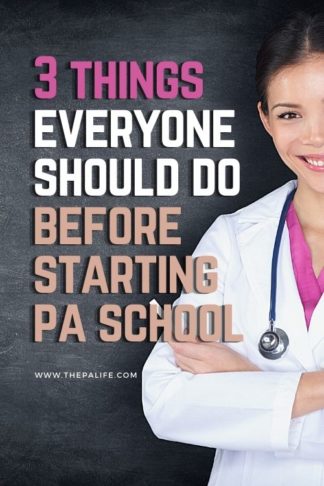 It's kind of unfair, isn't it?
It's kind of unfair, isn't it?
You have been working your butt off for months (probably years), taking all the necessary steps to get into PA school. You rocked your personal statement, crushed your interview, and then the acceptance letter finally arrived!
You are jumping up and down, crying aloud, shouting to the rooftops. You reread the letter and realize you have a 5-month window before PA school starts! Great, you think, "It's time to book my flight to Bali!"
Not exactly!
Some programs will have a list of what they want you to study before you walk in on day one—if that’s the case with your program, that’s wonderful. But a lot of schools don’t. They say, “We’ll see you on the first day.”
My friends, that’s unacceptable!
You are going into a profession in which you need to know concepts deeply, and it’s best to get started as early as you can.
If you have three, four, or even five months until you start PA school, here are some things you can do right now to make sure you are prepared for when you walk in the door.
3 Things Everyone Should do Before Starting PA School
1. Master Your Medical Terminology
Before you start PA school, you need to know your medical terminology. Otherwise, you're going to be behind.
If I say the word azotemia, acromegaly, or auscultation, you need to have an intuitive, automatic understanding of fundamental terminology. Your PA program is going to expect you to know these things.
I suggest you pick up a copy of Medical Terminology for Health Professions, by Ann Ehrlich.
Medical Terminology for Health Professions
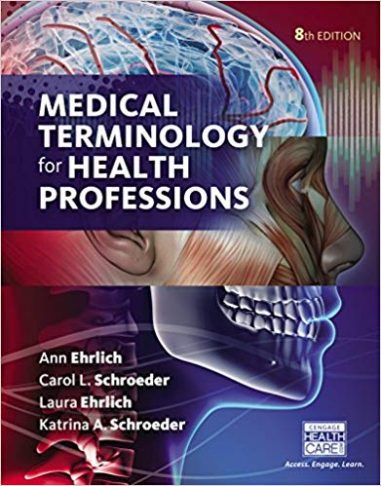
This is the book that our PA program required we read before PA school. We had a two-week "primer" of medical terminology before our program kicked off. The book simplifies the process of memorizing complex medical terminology by focusing on the important word parts--common prefixes, suffixes, and root words--to provide a foundation for learning hundreds of medical terms. Organized by body systems, chapters begin with an overview of the terminology related to the body's structures and functions, proceed through diseases and disorders, and end with diagnostic procedures and treatments.
2. Start Prepping for Pharmacology
Once you start PA school and the clock is ticking, tackling pharmacology can be a daunting task. If you start early, you can increase your chances of success and enjoy the process.
Here are the resources I recommend to give you a head start.
Get an Osmosis Prime or Picmonic Subscription

Ever since I created the Smarty PANCE Board Review website, I have had a love affair with Picmonic and Osmosis.
We even offer Picmonic as an integrated add-on exclusive to all Smarty PANCE members.
These two tools take all the pain out of memorizing complex medical topics and are terrific for understanding pharmacology.
Both of these sites offer seasonal discounts along with good deals on multi-year and multi-user terms. You can use the links below for 50% OFF Osmosis Prime and 20% off Picmonic using my PA LIFE readers discount.
Get 50% OFF Osmosis Prime
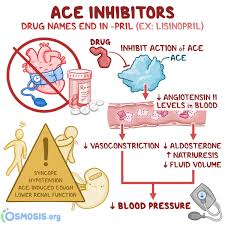
Get 20% OFF Picmonic
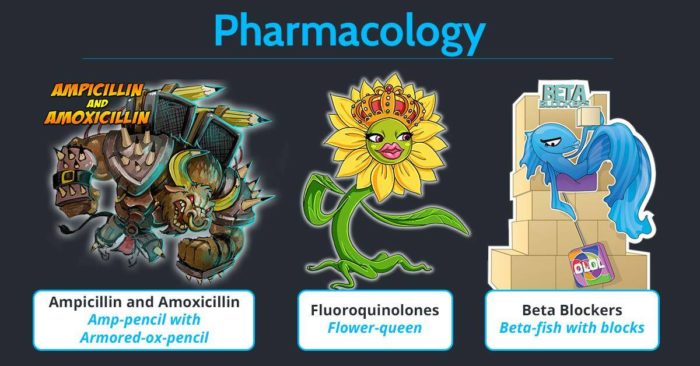
Pharmacology - Lippincott's Illustrated Review Series
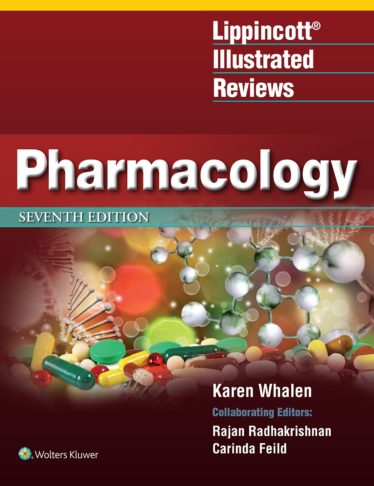
Lippincott's provides an excellent fundamental foundation for pharmacology, with helpful opening chapters on pharmacokinetics and pharmacodynamics. Consolidated and concise in an outline-based format with figures that display mechanisms of action. This is a straight forward, no-nonsense review text. It includes close to 400 high-yield questions as well.
Lange Pharmacology Flash Cards — Baron & Lee
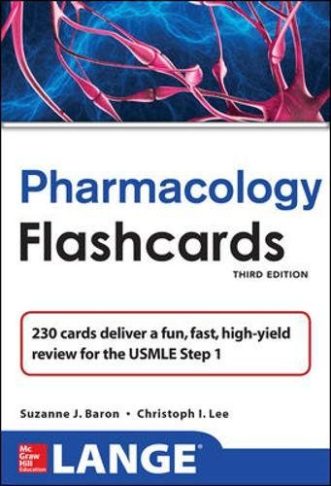
While there are several pharmacology flashcards on the market, the Lange flashcards are the highest yield. The front side of each card has a patient vignette, and the backside of each card has the mechanism of action, clinical uses, side effects, and other important details.
3. Get a "Leg Up" on Anatomy
If there is one thing I wish I could have told my PRE-PA self before starting PA school it would have been to make sure to get a head start on Anatomy.
When we started our anatomy course in PA school, I could easily spot my classmates who had a strong anatomy foundation going in. Suffice it to say; I was not one of them.
This meant I was playing "catch up" at a time when I had a gazillion other things to memorize. Having a strong foundation in anatomy would have made the didactic portion of my PA program (and my many years after working as a PA) much better.
Here are a few high-yield options.
Foundations of Human Anatomy EDX "XSeries"
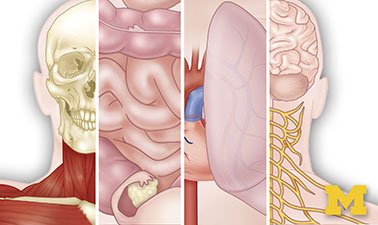
4 courses, 4 to 8 weeks per course, 2-3 hours per week (5 months total)
Cost $176.40
- Course 1: and Musculoskeletal and Integumentary Systems;
- Course 2: Cardiovascular, Urinary, and Respiratory Systems;
- Course 3: Human Neuroanatomy;
- Course 4: Gastrointestinal, Reproductive, and Endocrine Systems.
Anatomy Certification Course by the University of Michigan (Coursera)

Duration: 2 months, 7 hours per week
This is essentially the same course (at a reduced price) as offered by EdX, with the option to audit the course for free. They also offer a reasonably priced certificate program.
Cost $49 on Coursera
Anatomy Courses on Udemy

There are several Anatomy course offerings on Udemy, starting at just $14.99. For that price, you can hardly go wrong. Of the current roundup, I would recommend “Easy Anatomy and Physiology.”
PRO TIP: No matter what anatomy course you choose to take, I highly recommend that you augment this with the fantastic Essential Anatomy App (now on version 5). It is at the top of my list of the best PA school apps, and it will serve you well throughout your PA career.
Pick One and Get Started Today
As my dad used to say "don't put off till tomorrow what you can do today."
Although I used to hate it when he said this, there is no denying its validity. So don't put off the task of studying tomorrow what you can easily study for today, especially when today is much simpler than tomorrow.
By starting early, you will all but guarantee your PA school success while simultaneously creating a manageable and pleasant transition to life as a stressed-out PA school student.
And the best part, barring a global pandemic, you can do this all and still take your pre-PA vacation to Bali.
Cheers!
Stephen Pasquini PA-C















Hi:
You are probably not expecting to hear from a retired PA. Retires1/1/21.
I just want to say that PAs must demand name change. The assistant has to go, It is really stifling our profession. We tried unsuccessfully. I can’t understand why the NCCA is resistant and the AAPA is not fighting hard enough.
I was one of the pioneers (grad 1975). We are not assistants anymore.
Hi Lincoln, it is great to have your voice here on the blog. Believe it or not, I have been slow to jump on the PA name change bandwagon as I have felt for quite some time that it was just vanity. I reasoned that any name change now would require an expensive and time-intensive rebranding of our profession for the sake of our own egos. I became even more discouraged when the AAPA sent out their recent poll and produced a top-five list of potential names, which included “praxician?” Wow, I can’t make this stuff up!!
I am not keen on the word “associate,” although many countries have adopted this name and even schools such as Yale School of Medicine call themselves a “physician associate program.” Good on them for taking matters into their own hands. ?
Honestly, my patients could care less what my title is. They just want to know that I have the skill and wherewithal to join them on their medical journey. When so many people in this country go without even the most basic of health services, I will always find it hard to stomach millions of dollars allocated to a PA name change. But I get it!
Thanks for taking the time to leave such a thoughtful comment!!
Stephen